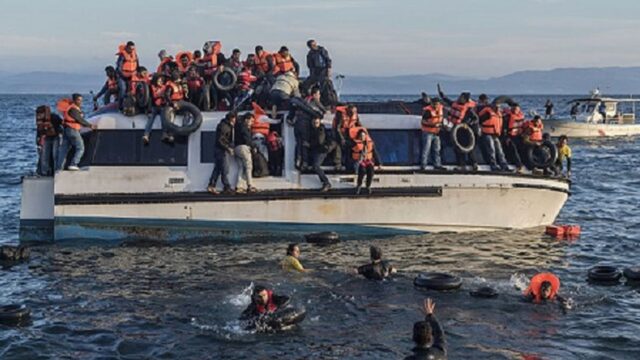The Remigration Fantasy

Remigration is a mirage that flickers on the horizon of decline. It promises redemption through reversal, as if the clock of history could be wound back, as if the peoples who have crossed borders could simply be sent home. Yet the conditions that created migration have also ended the possibility of undoing it. The Europe that dreams of returning to itself no longer possesses the energy, unity, or numbers to act. It stands at the twilight of the nation and the dawn of the civilization.
In Germany today, about twelve million women of native origin under forty remain. Their birth rate hovers around one child per woman. Their children will number barely six million. Beneath this quiet arithmetic lies a silent revolution: among children under five, nearly half already have foreign roots. The Baby Boomer generation, still filling offices, parliaments, and pensions, disguises the transformation. Yet in twenty years, when that generation departs, the veil will lift, revealing a continent that has already changed.
Remigration, measured against this reality, becomes absurd. A shrinking population imagines expelling millions while failing to replace itself. The fantasy grows in inverse proportion to strength. It comforts those who sense the decline but cannot face its depth. A continent that no longer believes in conquest cannot believe in removal. Its moral codes, bureaucracies, and economies all conspire against decisive action. Even those who chant for remigration would hesitate to carry it out. They need the system they condemn: the hospitals, the factories, the delivery trucks, and the foreign labor that keeps the old heart beating.
Yet this decline does not unfold in isolation. The world beyond Europe has awakened. Power now radiates from several poles: Russia, China, India, the Islamic world, and the Americas. Each pursues its own path, its own civilization. The global balance has shifted from unipolar control to multipolar contest. Migration itself is one symptom of this transformation: the movement of people following the vacuum left by fading power. To imagine remigration is to imagine resisting this cosmic realignment.
The paradox deepens. Europe, once the exporter of peoples and ideas, has become the receiver. It cannot remake the world in its image, for the world now remakes Europe in its own. In city after city, Europe now reflects the world back to itself: its voices, its creeds, and its pasts fused within the same stone walls. This is not an invasion but an inversion, the natural outcome of global power returning to equilibrium. The cry for remigration is a refusal to see that the age of empire has turned inside out.
Most Europeans have already adapted, quietly and pragmatically. They send their children to diverse schools, depend on immigrant labor, and inhabit cities where homogeneity survives only in memory. Yet this dependence brings its own strain: many of those who sustain the daily economy also draw heavily on its welfare, healthcare, and education systems. The continent pays for its survival through a slow fiscal bleed. It knows the imbalance yet cannot correct it. The same economies that rely on low-wage labor would collapse if that labor vanished. The same governments that lament the burden fear the upheaval that would follow any attempt at reversal: unrest in the streets, revolt in the institutions, and paralysis across the system. Europe must therefore endure what it cannot undo: a dependence it resents and a transformation it cannot escape.
Remigration will never happen because it cannot happen. The machinery of civilization has locked Europe inside the ruins of the unipolar age. The forces that once made the modern world — trade, technology, migration, and empire — have fused into a single, exhausted system of dependence. That system still sustains Europe even as it drains its vitality. Multipolarity rises in opposition to this order: a rebellion of civilizations seeking autonomy, borders, and rootedness. Europe’s task is to rediscover authority within this new contest: to turn decline into form, to command complexity rather than dissolve in it, and to reclaim destiny from the very system that consumed it.
The illusion of remigration offers comfort to those who wish for a simpler world. Yet the real drama of our time lies elsewhere: in how Europe faces its metamorphosis. The nation has died; the civilization must rise. The past cannot return, but the future still demands strength.
